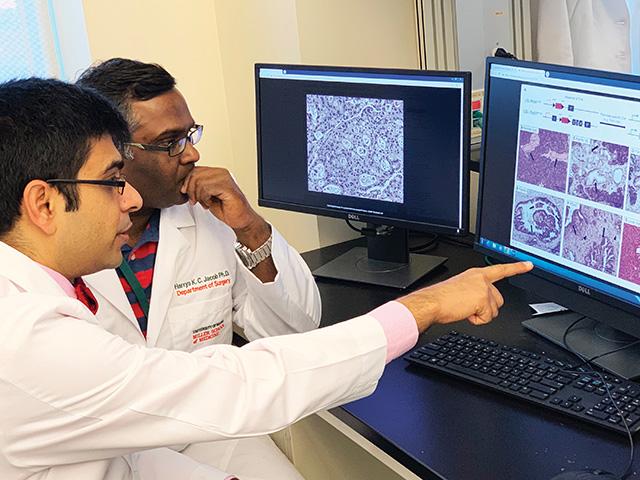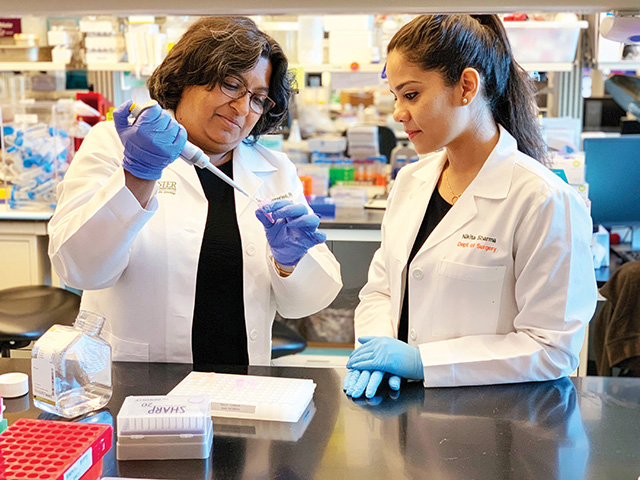Cigarette smoking is one of the major risk factors for pancreatic cancer and a focus of study for researchers Vikas Dudeja, M.D., and Sulagna Banerjee, Ph.D. Their individual research projects examine different tobacco-related mechanisms that promote or drive this aggressive cancer.
The Florida Department of Health’s James and Esther King Biomedical Research Program awards peer-reviewed, competitive grants for cancer research. Among the goals for this program established by the Florida Legislature is to expand the foundation of biomedical knowledge relating to the prevention, diagnosis, treatment, and cure of diseases related to tobacco use. Out of 85 applicants for the grants this year, 10 were selected.
“Mechanism of Smoking Induced Promotion of Pancreatic Cancer” is the grant title for the research submitted by Dr. Dudeja, an associate professor of surgery. He has been awarded $805,393.
“Our research previously has demonstrated that gut microbiome promotes pancreatic and many other cancers,” Dr. Dudeja said. “Our recent studies have suggested that changes in gut microbiome mediate many of the effects of smoking. We will be building on these findings and will define cigarette smoking induced changes in gut microbiome, how they promote cancer, and how we can counteract them to make lives better for our patients.”
Dr. Banerjee, an associate professor of surgery, has been awarded $805,409. Her research will study the underlying molecular mechanism of the inter-conversion that pancreatic cancer cells undergo which makes them more aggressive and resistant to treatment.
“Carcinogens in tobacco smoke alter the cellular signaling pathways in the pancreatic cancer microenvironment, inadvertently selecting for a population of cells that are resistant to therapy,” said Dr. Banerjee. “My project is geared toward understanding the mechanism of this selection and, more importantly, evaluating if these altered pathways can be targeted to prevent this enrichment of treatment resistant population and increase survival of pancreatic cancer patients.”

